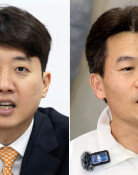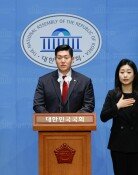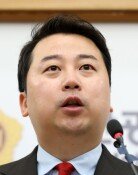Views of U.S. press on Kim-Bush summit
Views of U.S. press on Kim-Bush summit
Posted March. 08, 2001 11:52,
The American media on Wednesday offered differing views of Seoul and Washington`s approaches to North Korea, an issue that was high on the agenda at the first summit between President Kim Dae-Jung and U.S. President George W. Bush.
An editorial in The New York Times Tuesday said North Korea`s erratic history makes predictions difficult, but admitted that there may now be a chance to further reduce tensions on the Korean Peninsula, ``the last active front of the Cold War.`` The editorial advised Bush and Kim to work together to explore the chance.
But the newspaper on Wednesday pointed to some differences in the two countries` North Korea policies, saying in a Mar. 7 report on Kim`s arrival in the United States, ``President Kim and the Bush administration may clash over the right strategies for dealing with North Korea.``
The newspaper also quoted Douglas Parl, director of the Center for Asia and Pacific Policy, as likening President Bush to a police officer and Kim to a clergyman, saying, " The cop wants to disarm and derail North Korea while the clergyman tries to help and make it repent.``
Former Secretary of State Henry Kissinger wrote in The Washington Post on March 6 that Kim`s visit to the U.S. capital provides the opportunity to coordinate South Korean and American strategies, adding that Seoul and Washington must be receptive if North Korea`s actions provide evidence that it is seeking to graduate from the status of rogue state.
In contrast, the conservative Wall Street Journal said in an editorial on Mar. 6 that it hopes President Bush turns down any request from South Korea for Washington to stay the course of appeasing Pyongyang and instead resumes attempts to hold missile negotiations with North Korea, talks that failed to materialize at the end of the Clinton presidency.
The newspaper called on Bush to find out what President Kim had in mind when he joined Russian President Vladimir Putin in calling for the preservation and strengthening of the Anti-Ballistic Missile treaty. It went on to criticize the Kim-Putin statement for ``going overboard,`` arguing that the missile shield conceived by the United States was aimed at protecting such American allies as South Korea.
Han Ki-Heung eligius@donga.com







